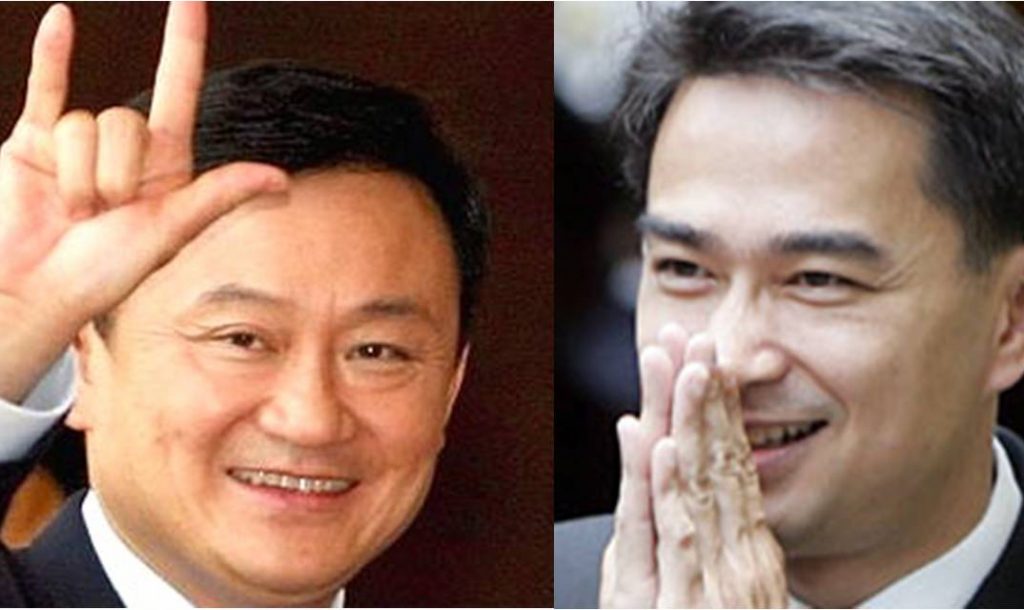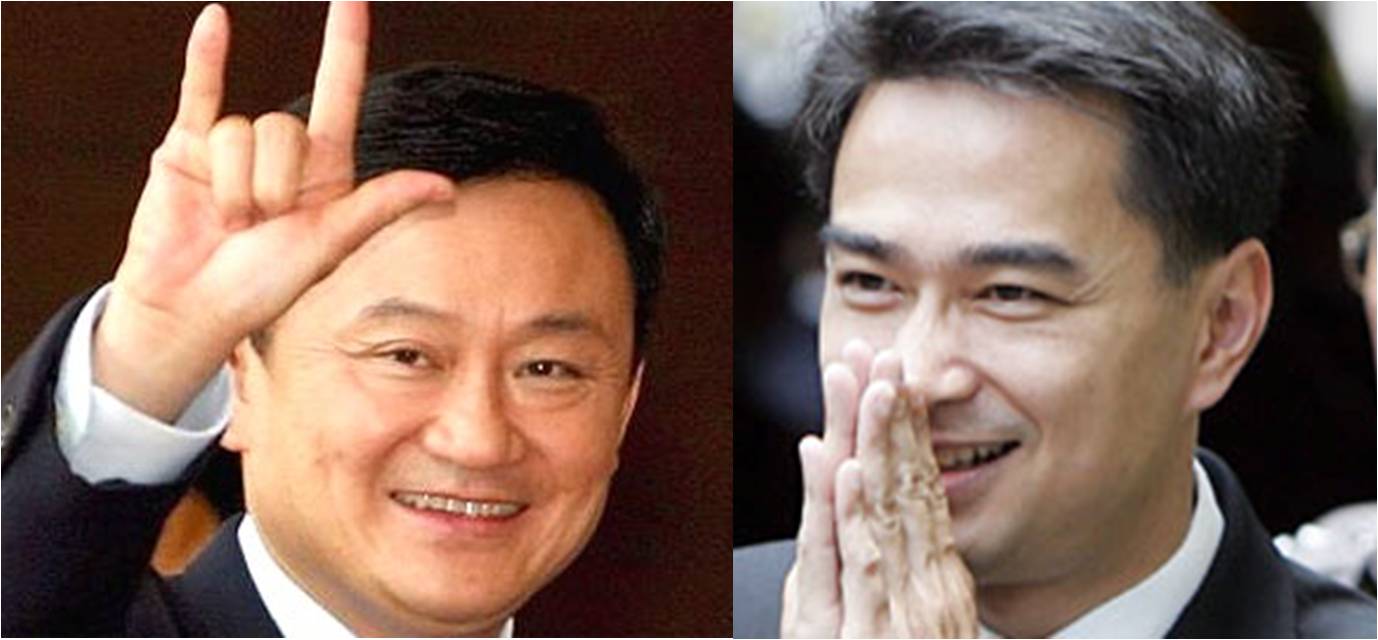I want to believe that those who have taken to the street recently in Bangkok really do wish at heart to simply have a political system that is free from the influence of money. Or maybe we should say extreme amounts of wealth, like an ultra-extreme amount of wealth available only to the–not the top 1 percent–but the top .01 percent, top .001 percent, and, empirically speaking, really the top .0001 percent of Thailand’s 67 million people.
The influence of extreme inequalities of material wealth on national politics is a very good reason for those who work in salaried, white-collar professions in Bangkok to protest en masse. Honestly, the influence of extreme wealth on politics is a good reason for anyone to protest. And so, we should acknowledge that those on the street right now are acting of their own volition, correct? All of us have friends and colleagues who, whether we agree with them or not, are part of this protest, people whom we respect. We can acknowledge their passion. If this is a passion stirred by the direct consequences of extreme material wealth–the most salient example of this in Thai national politics being former PM Thaksin Shinawatra–then it is a legitimate passion, and more importantly, a legitimate reason to protest.
When political equality is hampered by economic inequality, can Thailand still have a liberal democracy? I wonder if this is at the heart of the problem. Does Thailand have something like a national oligarchy that is affecting, whether negatively or positively, some political outcomes? Does it make sense to ask if, casually speaking, the presence of a robust Thai oligarchy after Thaksin’s emergence on the national stage has conditioned, constrained, shaped, or some other way constituted the various events leading up to the 2006 coup, the crackdown of red-shirted protesters in 2010, the national elections in 2011, and the current round of protests in a way that if there were no Thai oligarchy would quite simply have not have occurred? Does Jeffery A. Winters’ thesis in his 2011 book Oligarchy apply to national case of Thailand as well?
PM Yingluck has made a public statement saying that she will dissolve the lower house of parliament, triggering a new round of national elections, most likely to occur in February 2014. Most of us acknowledge that Yingluck and her party have the political capital to win a majority in the House of Representatives again. Many of us worry that because the minority party also realizes this, they may choose to boycott the general election altogether. Indeed, if one cannot win the game of cards, is it really better to flip over the card table? Others of us worry that this is an invitation for military action for the “security” or the “safety” or the god-knows-what-tawdry-line-they-will-use-this-time of the nation. Eternal recurrence is rearing its ugly head again in Thai national politics.
But if we stand back from the events at hand, attempting to be as objective about all of this as one can, can we then ponder if the last few weeks of events may not have been downstream from the political choices of a few oligarchs? That is to say, does Thailand have a national oligarchy and is the political street carnival we have been witnessing have anything to do with this oligarchy? This is not to ask does everything in Thai national politics happen because of a few extremely wealthy Thai oligarchs, but instead to ask the counterfactual: If extreme inequalities of material wealth were not an empirical reality in Thailand, then would events be playing out as they are right now?
And the evidence for all of this? Let us remember the yellow-shirted protests of 2006 or the red-shirted protests of 2010 first. Who can afford to pay for these national political events for a sustained period of time? We know that neither the “middle-income peasant” nor “middle-class Bangkokian” can. How much does such an event cost? Well, we can count how much it costs to feed x number of protesters for x number of days, as well as transportation costs to and from, costs for stage equipment and speakers, costs for blankets and tents, the costs of multicolored posters and flyers and silk-printed t-shirts, noise clappers, hats, scarves, whistles, flags, headbands, and what would otherwise be paraphernalia better suited for spectator sports, costs to pay off some portion of police or military to allow the protest to last longer, costs for media at the event, for the nation, and for international consumption, costs to buy off other politicians to stay the course, costs to provide cash assistance to families who lose loved ones in the protests, costs to encourage protesters when they return home to vote again, costs to forward legislation to convict politicians who went against the oligarch and grant amnesty to all those involved, costs to afford a palatial lifestyle in a foreign country whilst the oligarch waits until the dust has settled around the protests and returns home, and so on and so forth. A specific number can be attached to these costs and then compared to know exactly how much more powerful a Thai oligarch is than an average Thai citizen.
And now we inquire how different are the protests of 2013? How much does this round of street carnival cost? Who is paying for it? The number heard thrown around town is that it has cost about 5 million baht a day to keep this current round of protests alive. Who can afford to pay for this?
Again, as much as I want to believe that everyone on the street, whether they be for or against Yingluck and her failed proposal for the “amnesty bill”, is there because they passionately believe in what they are doing, I have this nagging feeling that the majority of logistical and monetary support for these protests are very well funded by a few selective individuals whom I cannot resist referring to as “oligarchs”. I have not heard others use “oligarch” or “oligarchy” with the Thai national case so much–not like I have heard it in reference for the Philippines or Indonesia. But I wonder if it is now time to begin using it with Thailand. All of us ought to agree that the vain fellow who has secreted himself away somewhere on the coast of the Arabian Gulf is an oligarch. With an estimated wealth of $1.7 billion USD, Thaksin is a perfect example of a “Thai oligarch” if there ever were one. But is he the only one?
The problem with the idea of “Thaksinization” is that it is only tenable in the sense that it is really a kind of “oligarchization”, which is simply named after the one hapless oligarch who has been most visible in this variant of money politics. All of this emphasis on Thaksin has dulled our senses to the very real fact that he is not the only vain oligarch on the Thai national stage. Was Sondhi Limthongkul a penniless man? Are Suthep Thaugsuban and company paupers? Not quite.
Again, if the current round of protests are about the misuse of extreme material wealth in national Thai politics, then I understand them and, at times, support them. But we should also not forget that something fundamental has changed in the last few decades in Thailand’s national political arena. I worry that a Thai oligarchy of fighting idiots has permanently implanted themselves atop Thailand’s fledgling liberal democracy. Please tell me that I am not the only one who has noticed this?
T. F. Rhoden is a Ph.D. Candidate in the Department of Political Science at Northern Illinois University, currently funded by the Center for Southeast Asian Studies at Northern Illinois University. He will be presenting the paper “Oligarchy in Thailand” at the 12th International Conference of Thai Studies in April 2014 at Sydney University.
 Facebook
Facebook  Twitter
Twitter  Soundcloud
Soundcloud  Youtube
Youtube  Rss
Rss 
